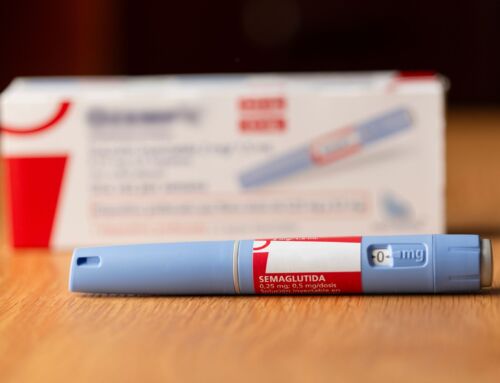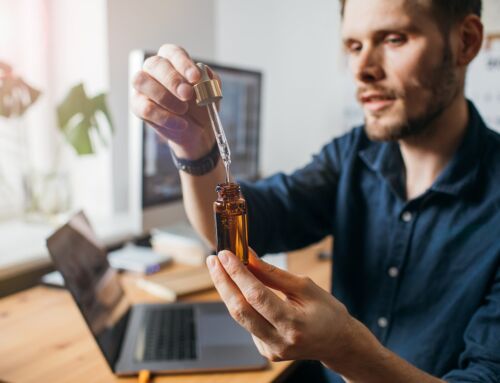When someone is seeking help for drugs and alcohol via a treatment center or rehab, they might often hear of the different types of services offered at a facility. Often there is the mention of clinical services, which typically consist of things like therapy and counseling, including individual therapy, group therapy, and family therapy. They will also often hear of medical services, which usually consist of psychiatry, but can also include traditional medical care given by doctors and nurses either in a detox or treatment setting. There is often discussion of recovery support services or peer recovery services, which typically are direct care support given by positions like behavioral health techs, counselor assistants, or peer recovery specialists. Then there are often additional services commonly referred to by the general term of “case management.” So, let’s take a look at exactly what case management is and how case management services support patients in an addiction treatment setting.
According to the Commission for Case Management Certification (CCMC), the practice of case management is
“…a professional and collaborative process that assesses, plans, implements, coordinates, monitors, and evaluates the options and services required to meet an individual’s health needs. It uses communication and available resources to promote health, quality, and cost-effective outcomes in support of the ‘Triple Aim’, of improving the excellence of care, improving the health of populations, and reducing per capita costs of health care.”
In terms of philosophy, the Case Management Society of America (CMSA), says that
“…the underlying premise of case management is based in the fact that when an individual reaches the optimum level of wellness and functional capability, everyone benefits: the individuals being served, their support systems, the health care delivery systems and the various reimbursement sources.”
These general ideas, specifically related to healthcare case management, give a good broad understanding of what case management is and how it is beneficial to clients, patients, and those impacted by the individual’s situation.
However, when taking a look at case management in the realm of addiction treatment and recovery support, the understanding can get a little more targeted. With the understanding that many of the points described above are handled in addiction treatment by the clinical and medical teams at a rehab or addiction treatment center, it is possible to target more specifically what additional case management services are accessed when a patient is in treatment for addiction, mental health, dual diagnosis, or co-occurring disorders.
In addiction treatment, case management typically refers to the general needs of a patient that fall outside the clinical, therapeutic, medical, and psychiatric needs being met by the clinical and medical team on the treatment center staff. These can differ based on the specific situation of the patient and the level of care they are in while receiving treatment; for example, the case management needs at an inpatient or residential treatment facility will be different than the case management needs at a partial hospitalization (PHP) or intensive outpatient (IOP) program.
However, generally, when speaking about case management in addiction treatment, we are discussing the basic but important needs a patient needs help and support with while receiving treatment for their addiction.
Examples of Case Management Needs
- Stable and supportive housing. If a patient is in a residential facility, they will need stable and supportive housing, or if a patient is in an outpatient level of care, they might need stable and supportive housing if their living environment is not stable, supportive, or safe. Examples of stable and supportive housing might be a sober living, a sober home, a recovery house, a halfway house, or other sober, safe, supportive living environments.
- Legal issues. Many patients in treatment for addiction have legal issues and need case management services to help them navigate the situation. This can include patients on parole, probation, or that have upcoming court cases. It can include collaborating with a patient’s attorney or the court system. This can include legal issues like a separation or divorce, custody of children, or legal matters pertaining to debt.
- Medical issues. For patients that have health issues or ongoing medical issues, such as chronic medical conditions, they often come to rehab or treatment having neglected those issues. So case management in these situations would involve supporting the patient in beginning the process of taking care of those medical issues. Getting the necessary education, finding necessary specialists, and coordinating the logistics of making sure patients set and engagement in medical appointments to address or manage these medical issues that often fall outside the scope of what a treatment center can support.
- Employment and/or Education. For patients, creating goal setting objectives related to employment or academics is vital. This can include helping a patient search for and obtain employment, which might also be helping them learn basic job skills or helping them with mock interviews. Or this could include helping a patient that is employed work with their human resources department or employee assistance program (EPA) in taking a leave from work and initiating FMLA. For students, this could be helping to navigate taking a leave from absence from a college or university, working with the academic institution, or navigating the process of enrolling or reenrolling in classes.
- Life skills development. This is a general term that can encompass many other areas of a patient’s life that have been neglected or undeveloped due to their addiction. Basically, this would be coordinating any care or support outside the traditional area of treatment (therapy, psychiatry, education, and recovery support) and the case management areas described above. Some examples of this might be working with the patient to learn budgeting skills, helping them obtain a driver’s license, learning to navigate public transportation for work if they do not have a vehicle, acquiring basic skills like cleaning or cooking, setting up a daily schedule, or navigating ways they can give back to the community through volunteering. It might include teaching them research skills and navigating online searches. Life skills development would include anything outside the realms of typical treatment and other case management areas that help the patient gain the tools and abilities to navigate life successfully.
Here at MARC, we have created numerous avenues and a support structure that allow for patients to have all their case management needs met. Some are conducted individually by a specific staff member while others are approached by a team of professionals from different areas and departments of the MARC staff. Primary Therapists handle a number of the case management support, while others are handled by the Community Living Treatment staff of Therapist Assistants. The MARC Medical Services Coordinator is able to help patients navigate and schedule ongoing medical needs outside of MARC. For patients that have careers or need employment, MARC has a full comprehensive Vocational Program and work individually and in groups with the MARC Vocational Therapist. Students and would-be students can be placed in the Caron’s College Success at Maryland Addiction Recovery Center collegiate recovery program, where the MARC Collegiate Recovery Specialist oversees and supports everything from obtaining a GED, leaving college, re-enrolling in college classes, switching universities, or working to obtain a master’s degree. For patients that are in the outpatient MARC programs and not part of the MARC Community Living Treatment extended care program, the MARC admissions and clinical team are able to find the patient safe, structured, supportive sober living. Making sure that all case management needs are met is an important part of getting a patient the necessary help to overcome addiction and begin living a high quality of life in recovery.
If you or someone you know needs help for addiction or co-occurring disorder issues, please give us a call. Maryland Addiction Recovery Center offers the most comprehensive dual diagnosis addiction treatment in the Mid-Atlantic area. If we aren’t the best fit for you or your loved one, we will take the necessary time to work with you to find a treatment center or provider that better fits your needs. Please give us a call at (410) 773-0500 or email our team at info@marylandaddictionrecovery.com. For more information on all of our drug addiction, alcohol addiction and co-occurring disorder services and recovery resources, please visit our web site at www.marylandaddictionrecovery.com.






